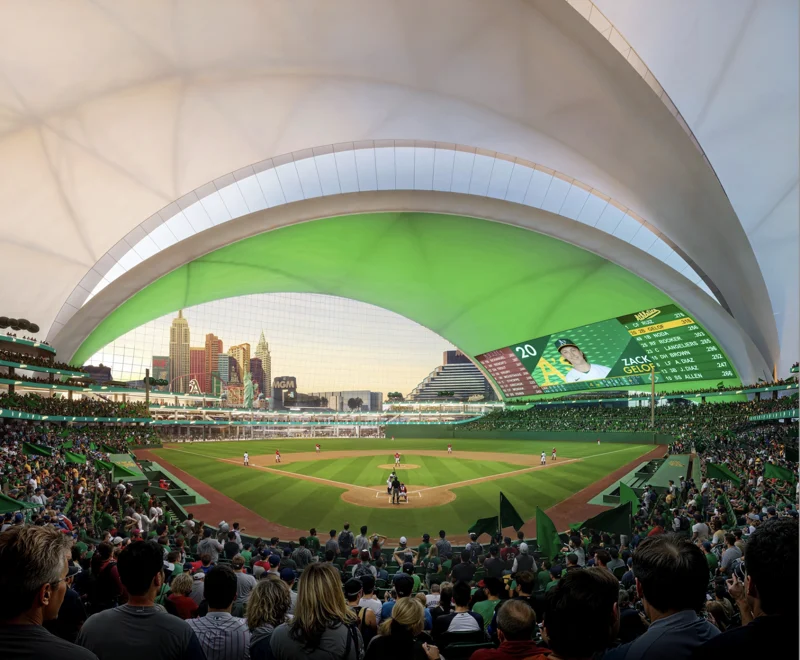Las Vegas has “broken ground” on the still unconfirmed $1.75 billion Athletics baseball stadium.
The city’s latest stadium project is drawing heavily on public funds — $380 million from Nevada and Clark County. That’s raising questions about whether taxpayers can expect a home run from their investment. For now, the A’s, who were previously in Oakland, are playing in Sacramento until a Las Vegas stadium is built.
“I have no doubt this is done in 2028,” Athletics President Marc Badain told The Associated Press. “You know the workforce here; they’re all here and ready to get going.”
The Las Vegas area has taken major steps to make this project a reality. This past October the 1950s mob-era Tropicana casino on Las Vegas Boulevard was blown up to make space for the nine-acre plot of the potential Las Vegas Athletics stadium. Plans call for the stadium to rise among casinos on the famous Las Vegas Strip, which is in an unincorporated area outside city limits.
But the groundbreaking ceremony Monday reflected the hesitations that Nevadans have around calling the Athletics their team. With the big names of Nevada politics present, the classic suit-clad, golden shovel-holding groundbreaking happened out of a baseball display filled with dirt, which was not on the ground. Heavy machinery dominated the photo shoot background, but they turned out to be props rented for the day.
Looking to find the funds for his $1.1 billion share of the stadium project, Athletics owner John Fisher has begun the process to sell his Major League Soccer team, the San Jose Earthquakes. The $600-million sale would plug some important holes but leaves a big price tag up in the air for Fisher. Meanwhile, Nevadan taxpayers have already been signed up to pay the sizable $380 million chunk of the total for the stadium.
The public funding was approved through the 2023 legislative session’s Senate Bill 1, mirroring the $750 million of public funds approved for the NFL Las Vegas Raiders Allegiant Stadium in 2016.
The $2 billion Allegiant Stadium has widely been considered a financial success, regularly being named the top stadium concert earner nationally, raking in over $119 million in 2024.
But like the Athletics’ potential future stadium, the vast majority of these earnings goes to the owners, who have made a good return on investment, while taxpayers can only hope to get their money back through increased tourism. Sports economists generally agree that stadiums shift money in an economy, not necessarily draw in new business to an area.
And all of this is happening amidst financial strains in Nevada, which saw a near $200 million state budget deficit earlier this year.






